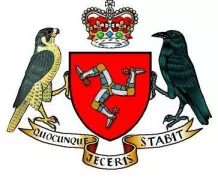‘An economy that offers low and capped taxes on personal income, no taxes on capital and zero or capped taxes on corporate profits – that’s an environment that investors will find hard to resist,’ says Fedelta’s Michael Shimmin…
Not many will have noticed – and even fewer been affected – by The Isle of Man’s introduction of a cap on personal tax. Those who are will have a net income to the tune of £600,000 in order to hit the cap of £100,000 of tax. And the Treasury is now consulting a similar move for companies. So what is the logic behind such a radical move?
The Isle of Man has set out to become a centre of excellence for wealth management and Treasury Minister Allan Bell believes ‘tax capping’ is the latest important addition to the Island’s arsenal of measures to manage the assets of wealthy individuals, and it is possible that in the future global corporations may also be included.
At the same time, Mr Bell is setting out to encourage more inward investment in new technology and ‘value added’ niche operations. Super wealthy entrepreneurs are usually unique individuals and more likely than most to be casting around for that equally unusual business venture in which to inject their special brand of magic – and capital.
Attracting more entrepreneurs
‘The argument put forward is that there is a limit to how much one person can reasonably be expected to pay towards the provision of services in the society in which they live,’ says Michael Shimmin, Chairman of the independent Fedelta Group ‘It is hoped that the introduction of the cap will encourage not only wealthy, but economically active entrepreneurs to move to the Island.
‘There is no doubt that diversification of the Island’s economy is to be welcomed and therefore investment into it by these people is desirable. But what are they going to invest in, you may ask? The answer is that these are - by their very nature – creative people who have the foresight, drive and means to see opportunities that the average amongst us do not. You could say that it’s this elusive quality that is the essence of the entrepreneur.’
As Chairman of the Association of Corporate Service Providers, - the trade organisation of both trust and corporate service providers on the Island – Mr Shimmin is privy to the sort of ‘insider information’ that confirms enquiries from this exclusive class of prospective resident has indeed increased since the measure was introduced at the start of the last tax year. But, as he points out, we don’t need many of them to make a significant difference to the Island’s economy.
Increasing the profit motive
‘Mr Bell is also saying that he will review the potential introduction of a cap on corporate tax, which essentially means the profits of banks,’ continues Mr Shimmin. ‘Banks are the major tax contributors since the Island’s zero tax strategy has moved most other companies out of the tax net. The suggestion is that the cap will would likely be pitched at a level that is greater than the amount that any company currently pays. This means that the current tax take will be protected and even grow as banks strive to reach the magic point at which their tax is capped.
‘It has not yet been announced - and is probably not yet decided – if it is possible to implement such a progressive proposal. But if it were I think it is quite clear that this would give individual banks a target, not so very far away, at which they would start to benefit. Instantly, this creates a scenario where any bank trying to decide where to expand and where to place its most profitable business has an incentive to do so in the Island.
‘New banks could be encouraged to move into the Island by seeing a lucrative opportunity for that rewards their success and for thinking up new and attractive banking products to be marketed from the Island.
‘An economy that offers low and capped taxes on personal income, no taxes on capital and zero or capped taxes on corporate profits – now that is an environment that investors would find hard to resist,’ adds Michael Shimmin.
The content of this article is intended to provide a general guide to the subject matter. Specialist advice should be sought about your specific circumstances.


